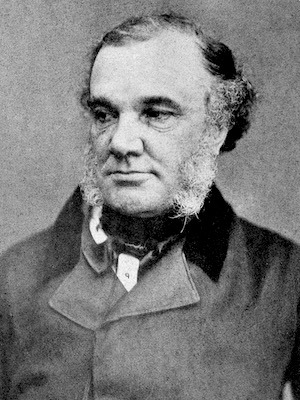
Thomas Addison
Thomas Addison: Pioneer of Adrenal Disease and Endocrinology
Thomas Addison, a British physician born in 1793, is best known for his groundbreaking work on adrenal disease. In 1855, he documented a disorder now known as Addison’s disease, which affects the adrenal glands. His discovery provided critical insights into how these glands, small but vital organs located above the kidneys, contribute to overall health. Addison linked adrenal insufficiency to chronic symptoms such as fatigue, weight loss, and low blood pressure, opening up new pathways for the study of glandular health.
Research and Contributions to Medicine
Throughout his career, Addison conducted extensive research on the adrenal glands, as well as other physiological processes, establishing connections between glandular dysfunction and chronic illness. His approach to medicine was meticulous and characterized by detailed clinical observation. Addison compiled his findings in publications like “On the Constitutional and Local Effects of Disease of the Suprarenal Capsules,” which became a reference for the medical community and brought attention to previously unrecognized health conditions.
In addition to his work on the adrenal glands, Addison made significant contributions to dermatology, identifying and describing various skin conditions. He also described pernicious anemia, a severe form of anemia now known to result from vitamin B12 deficiency. His observations on this condition further demonstrated his ability to recognize complex links between nutritional deficiencies and systemic health issues.
Dedication to Teaching and Mentorship
Addison’s influence extended beyond research as he was a dedicated teacher and mentor. His lectures at Guy’s Hospital in London were highly regarded, and many of his students went on to have successful medical careers, influenced by his rigorous approach to clinical observation and patient care. He emphasized the importance of clinical pathology in understanding diseases, advocating for a holistic approach that considered both the physical and psychological aspects of health. Addison’s mentorship and emphasis on thorough case studies helped shape a generation of physicians who valued detailed patient observation and a comprehensive approach to diagnosis.
Active Role in Medical Societies and Lasting Legacy
An active member of medical societies, including the Royal College of Physicians, Addison was committed to advancing medical knowledge and fostering a community dedicated to research. Though his work received limited recognition during his lifetime, his contributions were later acknowledged as groundbreaking. After his retirement in 1860, prompted by declining health, and his death on June 29 of the same year in Brighton, England, Addison’s impact continued to resonate. Many medical conditions and diseases were named in his honor, recognizing his pioneering role in identifying endocrine disorders.
Posthumous Recognition and Enduring Impact
Despite the challenges he faced, Addison’s dedication to medical research and education left an indelible mark on the medical community. His insights into adrenal disorders and advocacy for clinical pathology laid the groundwork for future advancements in endocrinology. Thomas Addison’s legacy is a testament to his relentless pursuit of understanding disease processes, his commitment to teaching, and his influence on generations of physicians who continue to build on his findings.
